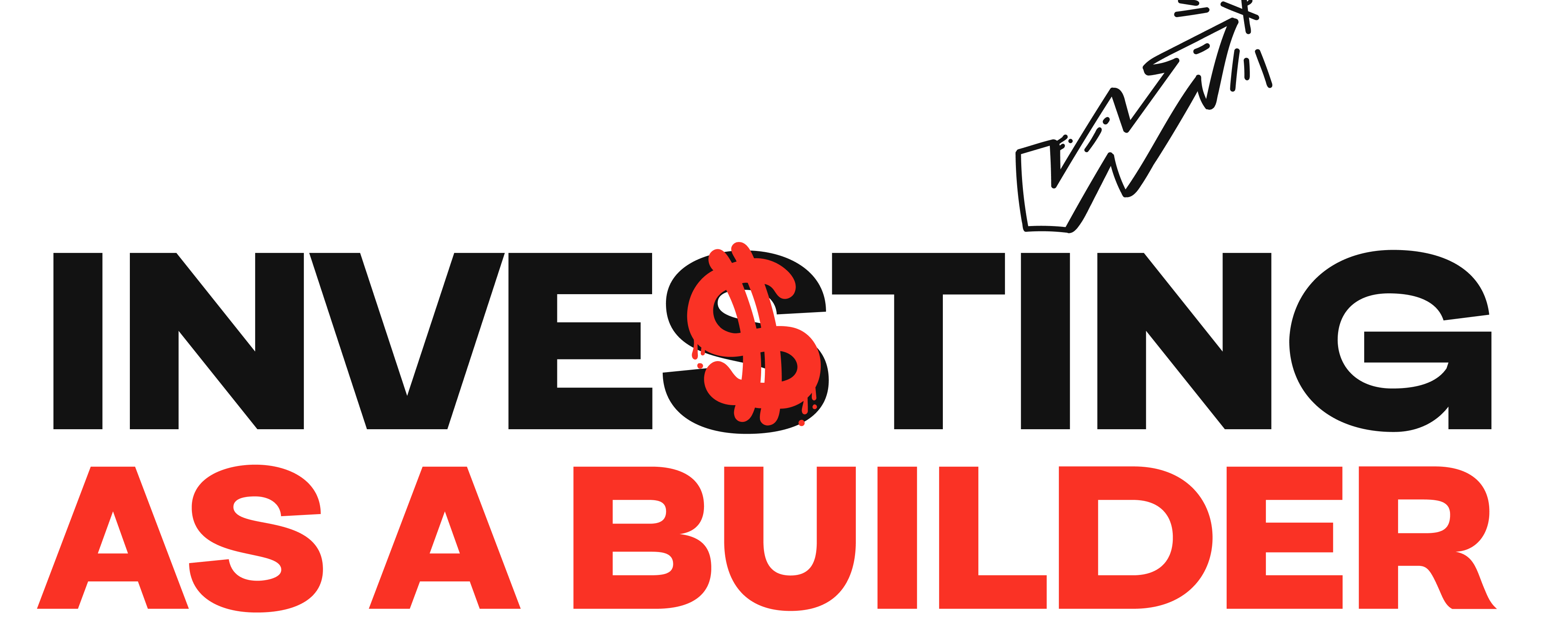vol.10 Investing as a Builder
Let me say this up front: I’m not a financial guru. I don’t have a finance degree. I didn’t grow up reading Warren Buffett quotes (only recently).
I started with nothing, made a little money building stuff online, and slowly realized “Oh shit, now I have to figure out what to actually do with it”.
So no, this isn’t a guide to options trading or crypto yield farming.
This is about how I think about investing… as someone who builds, creates, and earns online.
Not just where to put money, but how to treat your time, your skills and network like assets.
Because here’s the thing: if you’re a solo builder, freelancer, or creator, you already are an investor. You just might not be acting like one yet.
Your First Investment Is You
Before I ever bought a single stock or dabbled in anything “financial,” my first big investment was learning how to design. Then how to write. Then how to talk about my work so it didn’t sound like a résumé from 2011.
I didn’t realize it then, but every hour I spent building those skills was compounding. They made me money later, and not just once, but over and over again. They unlocked opportunities, clients, products, collaborators. That’s ROI.
If I had a few hundred dollars in the bank, I wasn’t thinking about buying Tesla shares.
I was thinking: how can I turn this into a skill I can charge for?
And it’s still how I think about most things.
Build, Then Buy
There’s a moment that hits when your income starts getting a little more stable. You’ve stopped doing $50 projects. You’ve launched a small product. Maybe cash isn’t pouring in, but it’s not a drought anymore.
Now what?
A lot of people go straight to the “traditional” advice: invest in index funds, save for retirement, 401k, Roth IRA, etc.
And sure, that’s fine. But if you’re still early in the game, those moves won’t change your life right now.
At this stage, I think in three buckets:
- Reinvest in my work - Tools, automation, better systems, education. If $200 spent saves me 10 hours? No brainer.
- Invest in relationships - Pay for the meetup, book the flight, buy lunch. The return here is exponential but invisible.
- Invest in assets - Small bets that could grow over time: products, domains, equity deals, maybe even stocks.
If it’s not growing me, my network, or my leverage, I’m not interested.
Long-Term Leverage Over Short-Term Gains
I don’t really care about the next 2% APY. I care about things that stack.
For example: building a product that sells while I sleep (even if it’s just $50/day) is more interesting to me than obsessing over a stock chart.
Building a tiny team or delegation system that lets me take a weekend off without my work imploding? Even better.
Even writing this newsletter is an investment. Every word I publish is a little seed.
So when I think about "investing," I zoom way out.
The question I keep asking:
What am I building now that will pay off later, even if I stop pushing?
That’s wealth.
So we asked our Oddsbreakers,
What do you invest in
as a builder/creator?

The question that anyone should ask when considering a business investment is simple:
"How is this going to produce a better outcome for customers or make me more money?"
When it comes to the quality of the tools we use, those allow us to create better deliverables-- create them faster, to a higher standard of quality, or at a higher level of specificity. So, I completely understand your perspective on that!
For my role, the thing which I value the most is my time to think about the problem. I think that some open time-on-problem and time-on-user-experience are what will really put you ahead of competition-- either leading you to create a better experience or perhaps even a completely novel solution to the problem.
The next most important investment is a great team. A great vision and a great team is an unstoppable force if kept well-maintained. They're also investible even without traction!
There are plenty of other things that can help us in the indirect sense that you alluded to-- a good and dependable work environment, a dedicated work computer, a couple of nice screens, etc. But, I'd set all of those aside to make sure that the vision and team are exceptional!
I invest in my skill building.
I identify gaps in my knowledge and try to gain experience on them:
- I didn't know how to create a database cluster, so I started self-hosting multiple databases and still learned a lot by maintaining them
- I didn't know how to validate my ideas, so I started doing things very differently when I realized that none of my projects worked properly
- I didn't know how to search optimize for Google, so I reached out to experts and learned the basics in order to apply them
- I didn't know anything about marketing, so I spent a lot of time with people that do to try a few things on my own
The more I learn and experiment, the more I realize how much I don't know.
When you know your limits, you can expand them.
Here’s my hot take: if it doesn’t help you sleep better, work less, or grow faster, it’s not an asset. It’s just a dopamine hit.
Your time, your skills, your systems - those are the main assets. Protect them. Improve them.
That’s how builders invest.
Want to become an Oddsbreaker?
Those are the people breaking the odds and working on their projects relentlessly. If you think you have what it
takes to join them, find more info in our discord.


